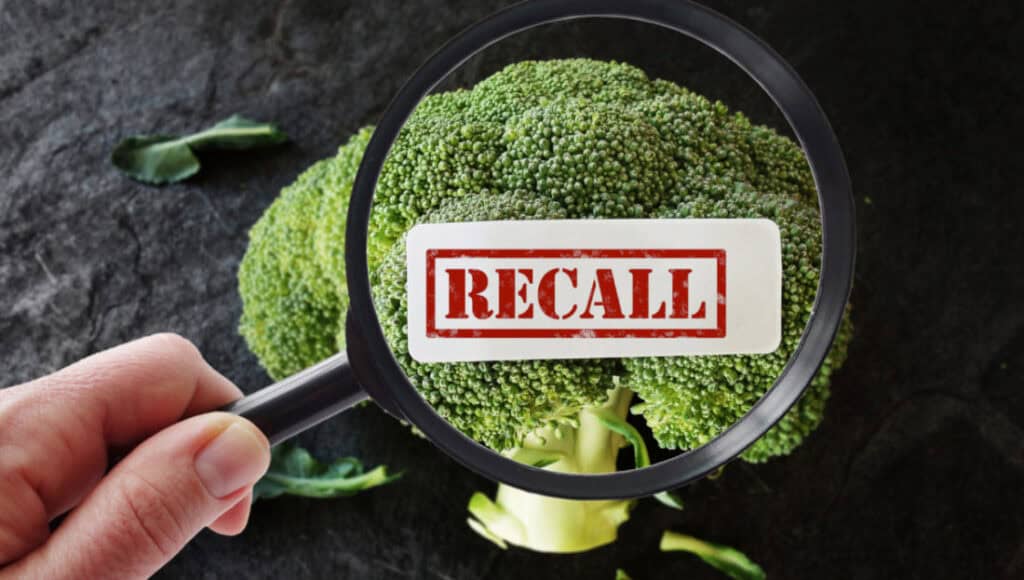Food Recalls are not always bad; voluntary recalls can help the brand image too. Indeed, the noodles recall in India was a significant event that drew widespread attention to food safety concerns and regulatory purview in the country. The scale and size of the recall has left an imprint on the consumers. Here’s your sentence rewritten in active voice with clearer, shorter structure:
Subsequent recalls have occurred, but none received widespread publicity. This reflects the authority’s lack of systematic information dissemination to consumers. There is also a significant lack of knowledge on what triggers a recall and how they should act in case of a recall. In an online poll on LinkedIn that we conducted, on the recent incident of finding a finger in ice cream, about 43% of the respondents said that a recall had been issued. However, there was no official notification from FSSAI on the recall. The FSSAI went ahead and suspended the license instead.

Food recall involves removing food products from the supply chain which includes storage/warehouse, wholesalers /distributors, retailers as well as the customers.
Authorities do this to prevent potential public health issues caused by contamination or regulatory violations. Manufacturers and importers must track their products through the supply chain to issue a recall when necessary.
There can be different types of food recall based on the functionality and the risk assessment. Regulatory bodies or the government can initiate a mandatory food recall, while manufacturers can initiate a voluntary recall.
Consumer complaints can also trigger recalls. For imported food, recalls may start based on reports or information from health and food authorities. The importer is responsible for carrying out the recall.
The food business operator, on receipt of the such directions, has to initiate a Food recall as mentioned in the regulation.
The main objective of a food recall is as follows:
- Removal of the product from all stages of food chain in accordance to the regulation.
- Ensure dissemination of information to the respective customers and /or consumers
- Ensure recovery, destruction or reprocessing of food based on the risk
As per the regulation, the food business operator shall promptly inform the consumers in the affected area of the food recall through press release, letters to the concerned parties or advertisements in the media and such press release, letter or advertisement shall be in the form of
‘Food Recall Notice’ and shall contain the following information, namely:-
(a) Name of the Food Business Operator recalling the food;
(b) Name of the food, brand name, pack size, batch and code number, date of manufacture, used by date or date of expiry;
(c) The contamination or violation in the food or reason for such recall;
(d) “do not consume message”;
(e) Health warning and action;
(f) The places or outlets where the food is found;
(g) The action to be taken by the consumer;
(h) Contact number for queries Food Recall alert

Food Recall Alert
Mark the communication as “urgent.” It is mandatory to timely report the effectiveness of the recall to the concerned Commissioner, Food Safety, State/UT & Designated Officer, concerned district and the CEO of FSSAI.
Collaboration between FBOs and regulatory body is critical to ensuring swift and effective action in response to potential risks posed by specific batches or lots of food products. The last issued food recall was initiated by FSSAI for Dried Oregano, 2021. However, this was later withdrawn. This highlights the importance of continuous evaluation, stakeholder engagement, and adherence to rigorous standards to ensure the safety and integrity of the food supply chain.
Having a well-defined recall plan is crucial for any food business to effectively manage and mitigate risks associated with potential safety issues in their products and the supply chain. As part of the compliance against many system standards like FSSC, BRC, ISO 22000, these standards explicitly require a food recall system as part of their requirements. Compliance with these standards not only ensures regulatory adherence but also enhances credibility in the marketplace.
Furthermore
Food recalls can prompt consumers to become more proactive about checking labels, researching brands, and staying informed about food safety practices. This increased vigilance underscores the importance of transparency and accountability in the food industry. Integrating a recall plan into food safety management systems is not just a regulatory requirement but also a proactive measure to protect consumers, uphold brand reputation, and maintain operational resilience throughout the supply chain. It underscores the commitment of food businesses to prioritize safety and respond effectively to unforeseen challenges.
Tracking and maintaining databases of product recalls are crucial aspects of regulatory purview and consumer protection in the food and beverage industry. A brief overview to the important databases are available in the FDA and BIS websites. We at Food Safety Works also collate the incidents which comes to our notice and they are available at food safety incidence page.
In summary, businesses may hesitate to issue recall notices due to concerns about their brand and future business. However, regulators must enforce recalls strictly because they protect public health. Voluntary recalls can often help enhance brand image as a responsible company. An effective food safety protocol and communication strategies will go a long way in maintaining consumer trust and confidence. Food recall also serve as a reminder of the importance of vigilance in food safety, effective regulatory enforcement, and the significant impact of consumer perceptions on brand resilience. It highlights ongoing efforts in the food industry to maintain high system standards of safety and transparency in product offerings.
This article is published in FnB News.